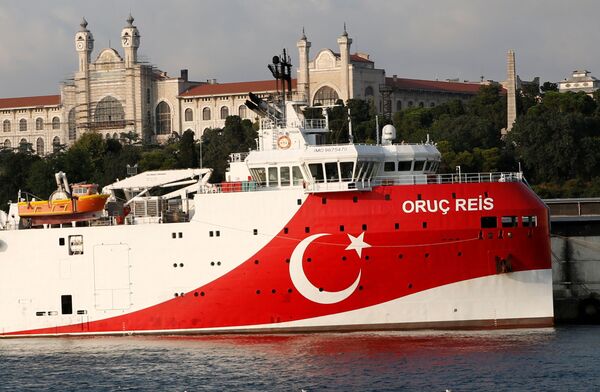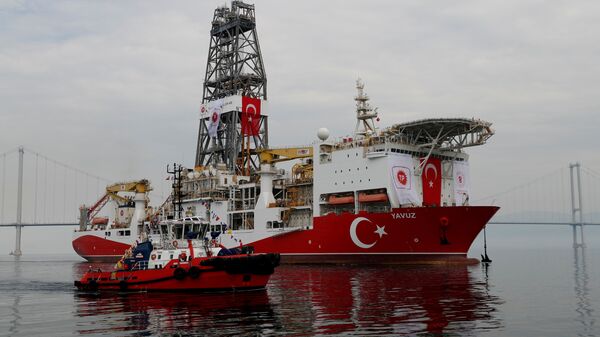The European Union has no right to demand that Turkey stop geological exploration work in the Mediterranean Sea, the Turkish Foreign Ministry said.
"The EU has no right to criticise the exploration activities of our country on our own continental shelf and demand that it be stopped... We call on the EU countries not to support the maximalist demands of Greece, contrary to international law, under the pretext of solidarity and unity", spokesman for the Turkish Foreign Ministry Hami Aksoy said.
The Turkish Foreign Ministry also said that the EU must "act impartially and be an honest mediator if it wants a solution [to the situation] in the Eastern Mediterranean".
In addition, Ankara again blamed Athens and Nicosia for the tensions in the Mediterranean.
The statement comes after European Union Minister for Foreign Affairs Josep Borrell called on Turkey to abstain from unilateral actions in the eastern Mediterranean, urging Ankara to engage in talks with the bloc. He added that there is an agreement to impose restrictions against Turkey if negotiations over Ankara's exploration drilling in the Greek-claimed waters in the eastern Mediterranean fail, while German Foreign Minister Heiko Maas stated that the sanctions must be discussed during an EU summit in September.
"The heads of states and governments will intensively deal with the issue of EU-Turkey relations at the summit in September … and we now have proposals for restrictive measures in case if there is no progress [on the settlement] — and we do not want this — then this issue will and should be discussed at the summit," Maas said at a joint press conference with Borrell in Berlin.
According to Borrell, the sanctions could target Turkish ships, but for now the EU is only listing persons linked to the controversy.
"First, you know that now, we are listing personalities, we can pass to list assets, ships, we can pass to sanctions [on] participation in the activities that we consider illegal — it means everything related [to] the working on this kind of activities or ... prohibiting the use of European ports, European capacities, technology, supplies ... we can go to measures related [to] sectorial activities in the fields, in which Turkey's economy is more related [to] the European economy," Borrell told reporters.
The Turkish-Greek tensions over drilling in the area have existed for many months, with the latest escalation occurring in August when Athens signed an agreement with Egypt on the delimitation of maritime zones.

Turkey, on the other hand, signed an agreement with similar provisions with Libya in 2019 to appropriate a big part of the Mediterranean waters that Greece considers part of its Exclusive Economic Zone.
At the same time, Turkey has been conducting exploration and drilling operations near Cyprus, claiming it is protecting the interests of a breakaway part of the island - the Turkish Republic of Northern Cyprus, which is recognised only by Ankara.


